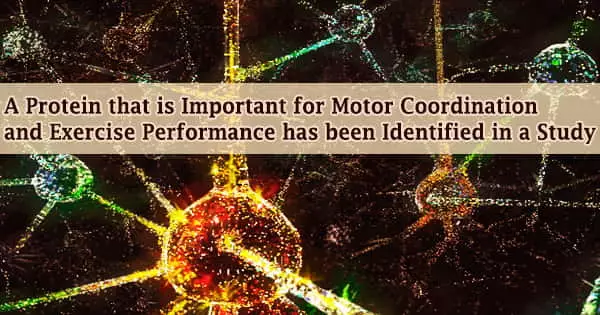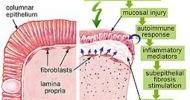In mice, researchers from Sweden’s Karolinska Institutet discovered a protein that increases muscular metabolism, motor coordination, and exercise performance. The findings, which were published in Cell Metabolism, could help patients with muscular and neurological illnesses like ALS.
Myosins and kinesins are motor proteins that move along cytoskeletal filaments using a force-dependent mechanism powered by ATP hydrolysis. Motor proteins’ core domains are restructured as a result of nucleotide hydrolysis and controlled inorganic phosphate release, which regulates the motor protein’s connection with filaments, other proteins, and the supply of nucleotides.
Muscle health is a crucial driver of overall health, and exercising frequently is the greatest method to keep muscles healthy. Exercise, however, is not always viable for those with chronic conditions. As a result, scientists are exploring for molecules that can bring about some of the benefits of physical activity on their own.
Motor proteins use a mechanochemical cycle of filament binding, conformational change, filament release, conformation reversal, and filament rebinding to push themselves along the cytoskeleton. Most of the time, the motor protein’s conformational change(s) inhibit additional nucleotide binding and/or hydrolysis until the previous round of hydrolysis and release is completed.
Researchers at Karolinska Institutet wanted to see how a muscle-produced protein called neurturin impacts neuromuscular function in the current investigation. Understanding the signals that mediate motor neuron and muscle communication is critical for developing new treatments for muscle and neurological illnesses like amyotrophic lateral sclerosis (ALS).
To find out that a molecule released from muscle fibers can actually change motor neuron identity, shifting them to a type that is associated with more resistance to degeneration opens really exciting possibilities for the future.
Jorge Ruas
“We wanted to know if muscles can talk back to motor neurons by sending their own messages, and to find out what are the consequences of those signals,” says Jorge Ruas, professor at the Department of Physiology and Pharmacology, Karolinska Institutet, and corresponding author.
Researchers discovered that mice genetically modified to create more neurturin in muscle cells had considerably enhanced muscle metabolism, exercise performance, and motor coordination when compared to control mice.
In addition, the high neurturin mice had more motor neurons of a type that is more resistant to degradation in disorders like ALS.
“To find out that a molecule released from muscle fibers can actually change motor neuron identity, shifting them to a type that is associated with more resistance to degeneration opens really exciting possibilities for the future,” Jorge Ruas adds.
The researchers plan to investigate the therapeutic potential of neurturin in mouse models of type 2 diabetes, obesity, and ALS as a following step. They’re also experimenting with different ways to administer neurturin so that it can be utilized as a medicine.
“There’s much to be done, but we believe this could be of therapeutic value for patients with metabolic and neuromuscular diseases, such as type 2 diabetes and ALS,” says the study’s first author Jorge Correia, a researcher at the Department of Physiology and Pharmacology, Karolinska Institutet.
The use of genetic tools and viral vectors to enhance neurturin levels, which isn’t directly applicable from a therapeutic standpoint, was one of the study’s drawbacks, according to the researchers.
The Swedish Research Council, Novo Nordisk Foundation, Swedish Diabetes Foundation, Strategic Research Program (SRP) in Diabetes, and The Lars Hiertas Memorial Foundation all contributed to this study.
Sandra Kleiner, Michael Stec, and Naveen Khan are Regeneron Pharmaceuticals, Inc. employees and shareholders. Jorge Lira Ruas is a Bayer AG consultant. There are no other conflicts of interest that have been recorded.
















